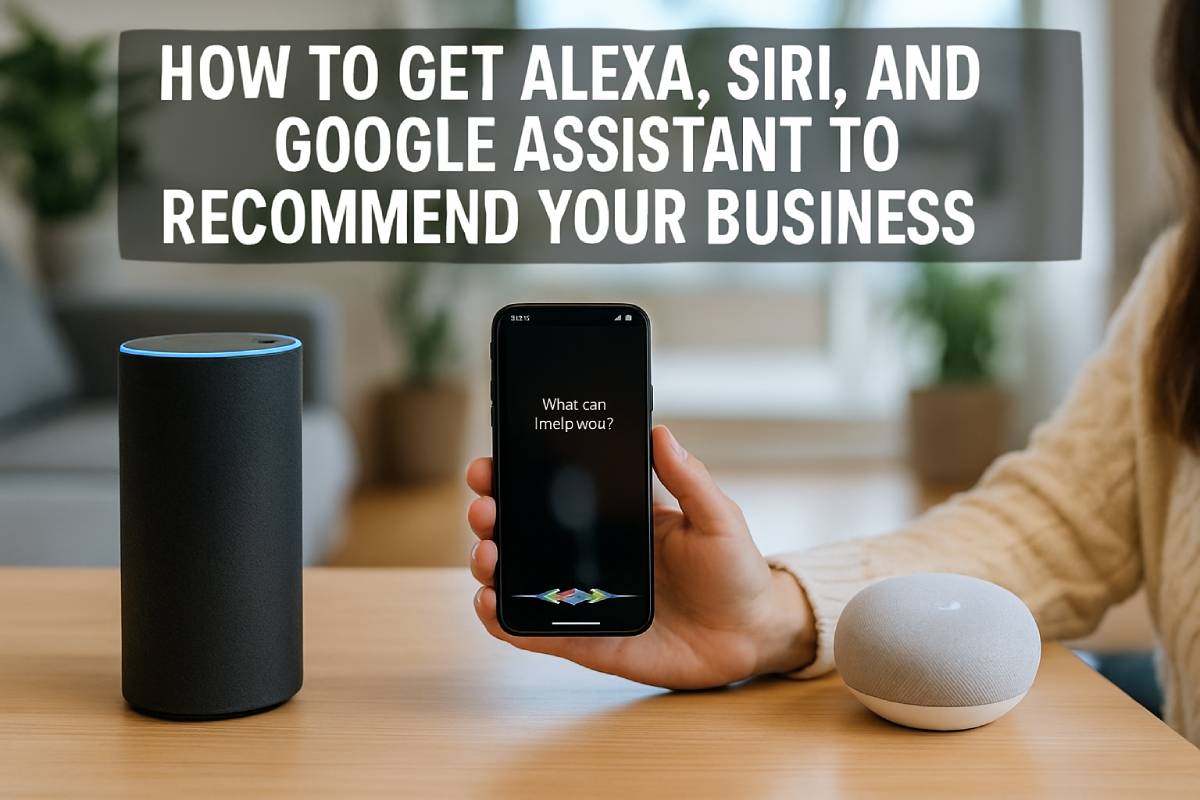
How to Get Alexa, Siri, and Google Assistant to Recommend Your Business
People used to “Google it.” Now, they just ask it out loud. Whether it’s Siri whispering directions, Alexa finding a pizza joint, or Google Assistant telling you the best mechanic near you, voice assistants are the new gatekeepers of local business visibility.
And here’s the gut punch: unlike traditional search where you get ten blue links and some wiggle room, voice assistants often serve up one single answer. You’re either the chosen one… or you don’t exist in that conversation.
So, if Siri is constantly serving your competitor, that’s not an “oops.” That’s a missed customer, a lost sale, and a digital slap in the face. But the good news? You can absolutely train these assistants to say your name out loud.
Table of Content
A. Understanding How Voice Assistants Interpret Business Information
B. Ensuring Consistent Business Information Across the Web
C. Leveraging Local SEO to Capture “Near Me” Searches
D. Building Trust and Credibility Through Authority Signals
E. Maximizing the Impact of Customer Reviews
F. Adapting Content for Conversational Search Queries
G. Crafting Concise, Direct Responses for Voice Search
H. Optimizing Website Performance for Mobile and Voice Search
I. Creating Engaging, Accessible, and Human-Centered Content
J. Competing with Larger Brands in Voice Search Rankings
K. Measuring the Effectiveness of Voice Search Optimization
L. Identifying Real Customer Queries and Search Behavior
M. Preparing for the Future of Voice and AI-Powered Search
N. Debunking Myths About Voice Search Replacing SEO
O. Navigating the Emerging “Answer Economy”
Key Takeaways
Schema markup = voice assistant fluency. Without it, your site might as well be speaking gibberish.
-
NAP consistency across all platforms is mission-critical. Inconsistency = invisibility.
-
Google Business Profile isn’t optional-it’s your front door for voice-driven local searches.
-
Authentic reviews build credibility and fuel recommendations. Fake ones will backfire.
-
Conversational content beats stiff keyword stuffing-voice SEO is all about sounding human.
-
Short, clear, FAQ-style answers are how you win the voice result lottery.
-
Big brands dominate, but smaller players can outsmart them with hyper-local strategy.
A. Understanding How Voice Assistants Interpret Business Information
Here’s the truth: Siri and Alexa don’t “think” like humans. They scrape structured data to find answers. That’s where schema markup comes in.
Schema is like teaching your website to speak in a way machines understand. Without it, your “We’re open late!” turns into digital nonsense. With schema, your business hours, menu, reviews, and services become instantly legible to voice bots.
Example: A restaurant that adds Local Business schema with openingHours will have a way higher chance of being Siri’s pick when someone asks, “What restaurants are open past 10 near me?”
Bottom line: schema markup is the difference between being Siri’s go-to and being ghosted.
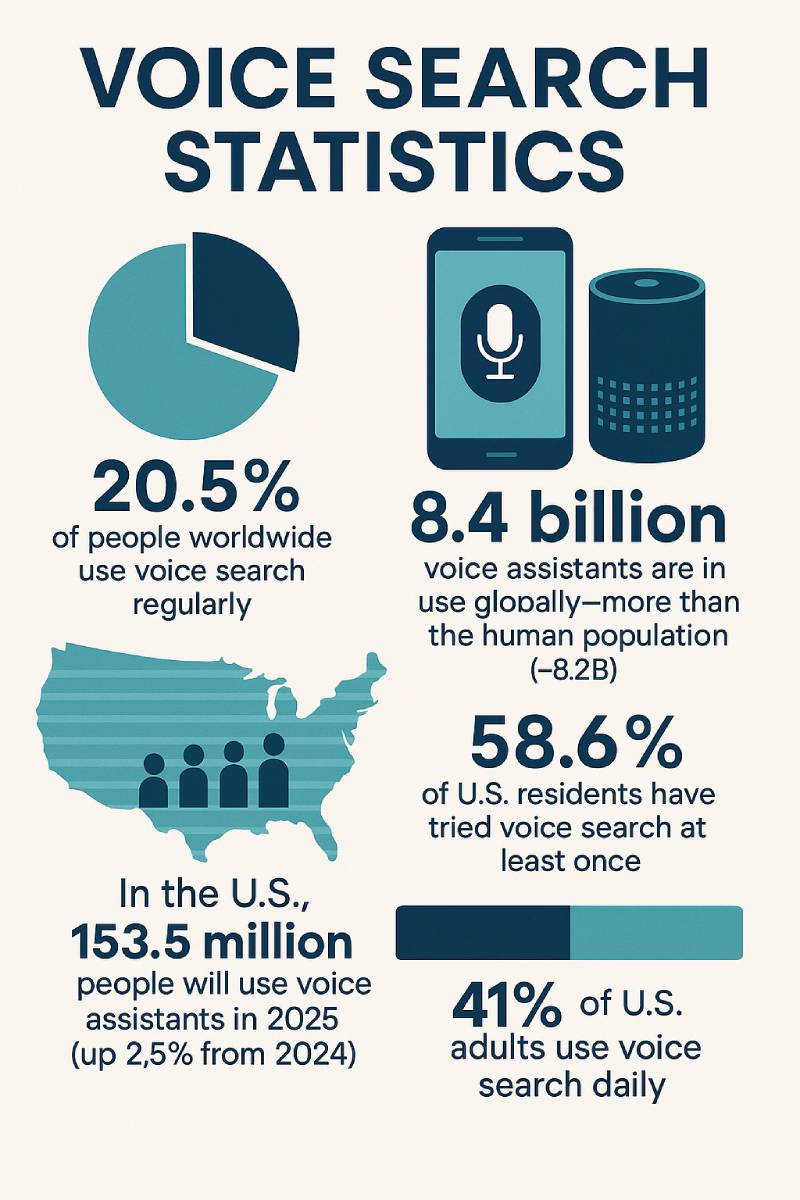
B. Ensuring Consistent Business Information Across the Web
This is where businesses trip over their own shoelaces. Your Name, Address, Phone (NAP) details need to match everywhere. If your website says “123 Main St.” but Yelp says “123 Main Street,” Google’s not going to play detective. It’ll just ignore you.
Inconsistencies break trust. To search engines, you look sloppy, and Siri isn’t recommending a sloppy brand.
Action tip: Run your business through tools like Moz Local or BrightLocal. They’ll show you all the messy duplicates and wrong info floating around.
C. Leveraging Local SEO to Capture “Near Me” Searches
Let’s be real: “near me” searches are the holy grail of voice. People want quick answers with zero effort.
Your Google Business Profile (GBP) is the number one factor here. If your GBP is bare, outdated, or half-filled, you’re invisible.
What matters:
-
High-quality photos (real ones, not stock).
-
Updated hours-including holiday hours.
-
Clear categories (don’t just pick “restaurant,” add “Vietnamese restaurant” or “pho shop”).
-
Posts with promotions, updates, or news.
Pro tip: If you serve multiple neighborhoods in Toronto or the GTA, make location-specific posts. Google loves when you show you’re local.
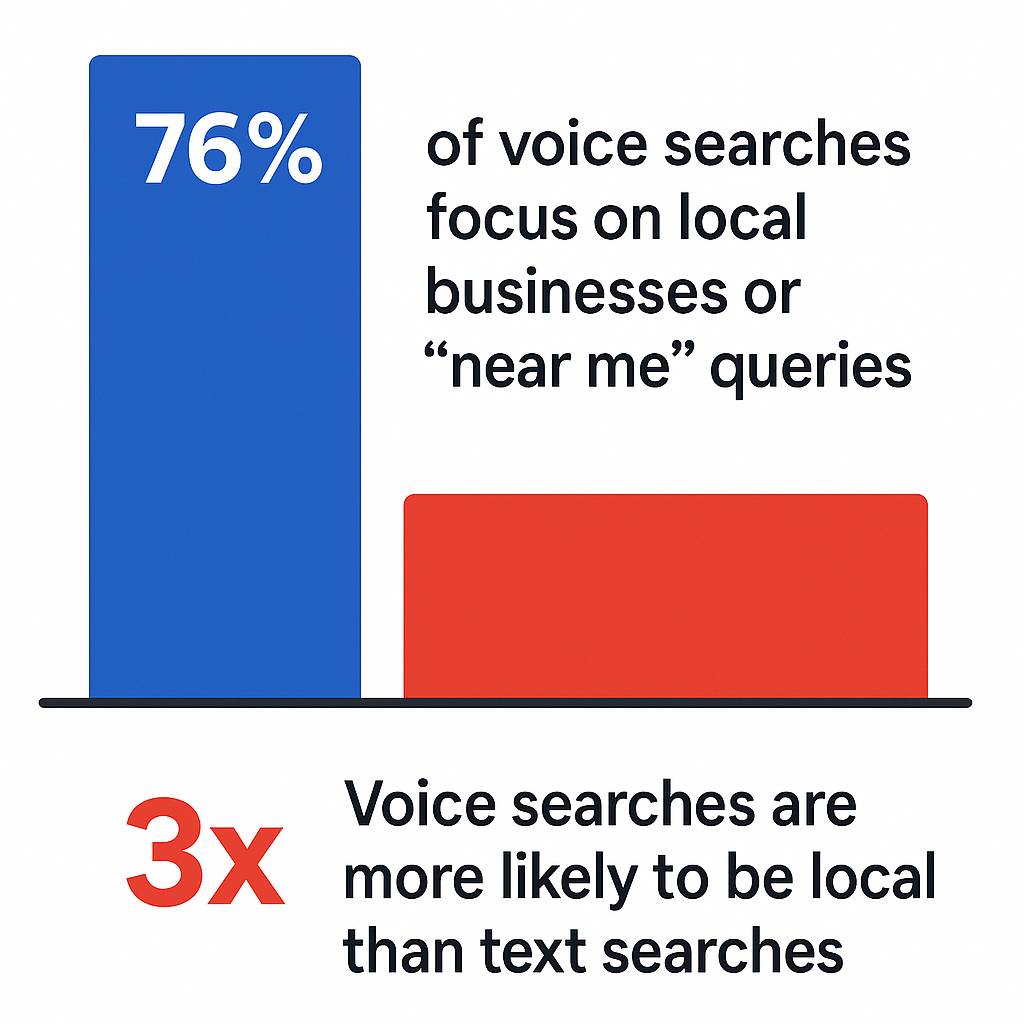
D. Building Trust and Credibility Through Authority Signals
Voice assistants are picky. They don’t want to embarrass themselves recommending a shady business. That’s why authority signals matter:
-
Reviews = proof people like you.
-
Backlinks = other sites vouching for you.
-
Citations = your name showing up consistently across the web.
If you’re invisible online, why would Alexa risk her rep on you?
Think of it like dating-no one trusts the guy with zero mutual friends and no online presence.
E. Maximizing the Impact of Customer Reviews
We’ve all seen those sketchy businesses with 200 five-star reviews that all read the same. Nobody buys it. Authenticity wins.
Here’s what works:
-
Encourage reviews by making it easy (QR codes, receipts, SMS follow-ups).
-
Respond to every review-good or bad. It shows you’re human.
-
Use feedback to fix real issues. A complaint about “slow service” is an opportunity, not a drag.
Voice assistants use reviews as a credibility filter. A business with rich, detailed reviews sounds more trustworthy than one with inflated, robotic praise.
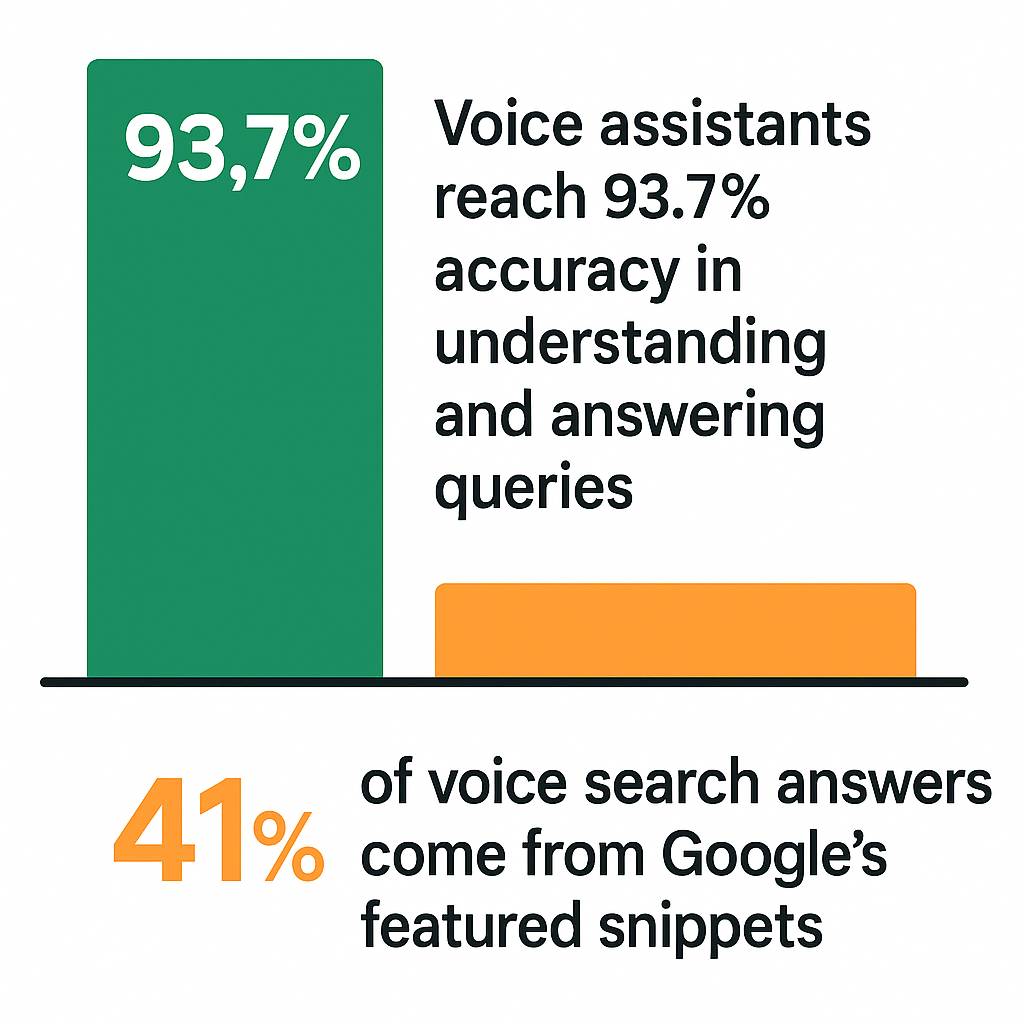
F. Adapting Content for Conversational Search Queries
People type like robots but talk like humans. That’s the gap you need to close.
Typed: “dentist Toronto.”
Spoken: “Hey Google, where’s a good dentist near Yonge and Eglinton that’s open on Saturday?”
Notice the difference? Voice searches are longer, question-based, and conversational.
That’s why you need Q&A sections, FAQ pages, and blog posts written in a way that mimics real customer language. Stop chasing keyword density-start answering real questions.
Ready to turn your website into a conversation starter? We help Toronto & GTA businesses create Q&A-style content that voice assistants love-so when customers ask, your business is the answer. Get conversational SEO content tailored for your business
G. Crafting Concise, Direct Responses for Voice Search
Voice assistants don’t read essays. They grab quick, digestible bites.
If your content is bloated, you lose. If your content is punchy and clear, you win.
Example:
Q: “Does your gym have yoga classes?”
A: “Yes, we offer yoga classes every day at 7 am and 6 pm.”
Direct, no fluff, and instantly usable.
H. Optimizing Website Performance for Mobile and Voice Search
Most voice searches happen on mobile. If your site takes 10 seconds to load or looks like it was built in 2005, forget it.
Google prioritizes:
-
Page speed (use tools like PageSpeed Insights).
-
Mobile-first design (test on actual phones, not just desktop).
-
Clean navigation (no one wants to pinch and zoom to find your phone number).
Your website is your digital storefront. If it’s clunky, Siri walks past you.
Want to make sure your website is lightning-fast and voice-search ready? Our Toronto-based team specializes in mobile-first SEO and voice search optimization so Alexa, Siri, and Google Assistant never skip your business. Talk to our Voice SEO experts in Toronto today
I. Creating Engaging, Accessible, and Human-Centered Content
Here’s the uncomfortable truth: most business websites read like they were written by robots trying to impress other robots. Customers hate that.
Voice SEO works best when your content is human-first.
-
Write like your talk.
-
Use examples people relate to.
-
Keep the tone approachable, not stiff.
If someone lands on your site from a voice search and it feels like a friendly guide instead of a corporate brochure, they’ll actually stay.
J. Competing with Larger Brands in Voice Search Rankings
Yes, Starbucks will dominate “coffee near me” in most searches. But does that mean your indie café is doomed? Nope.
Small businesses win by going hyper-local and personal. Big brands can’t say, “We know your neighborhood, and we’ve been serving it for 20 years.” You can.
Leverage that. Add community-specific content, showcase your roots, and let reviews reflect your personal touch.
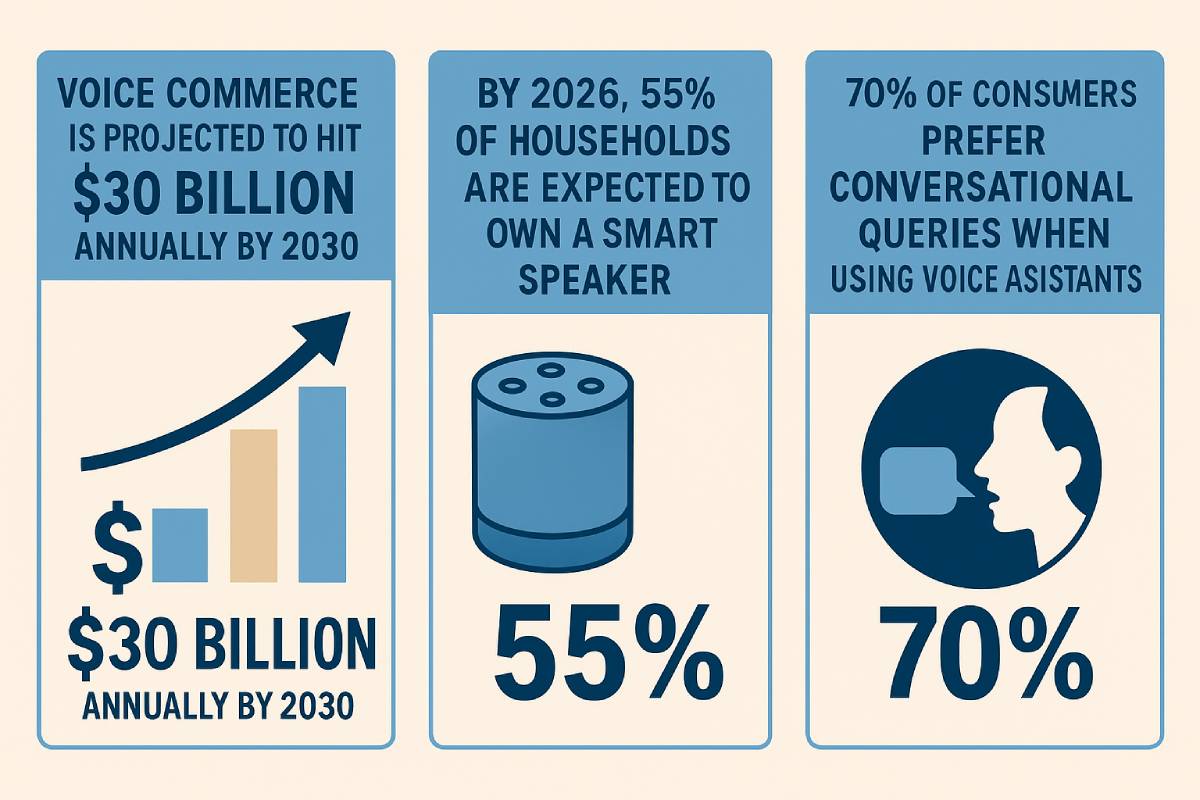
K. Measuring the Effectiveness of Voice Search Optimization
Don’t just throw darts in the dark. Track your progress.
Tools to use:
-
Google Search Console → See what queries bring people to you.
-
Google Analytics → Track behavior and conversions.
-
AnswerThePublic → Find what questions people are asking.
Measure impressions, clicks, and “near me” searches. That’s your scoreboard.
L. Identifying Real Customer Queries and Search Behavior
Want to know what people ask voice assistants about your business? Check your own data.
-
Look at customer emails and messages.
-
Listen to phone inquiries.
-
Scan your Google Search Console for “what,” “where,” “how” phrases.
Every common question is content gold. Turn it into a Q&A on your site.
M. Preparing for the Future of Voice and AI-Powered Search
Voice search is evolving into Answer Engine Optimization (AEO). Instead of just links, search assistants are moving toward direct answers.
AI is learning context. Soon, someone asking “best spa near me” might get a personalized answer based on their habits, budget, and history.
Future-proofing means writing content that’s not just keyword-optimized but intent-optimized.
N. Debunking Myths About Voice Search Replacing SEO
Let’s clear the air: voice search isn’t killing SEO-it’s reshaping it.
Think of SEO as a toolbox. Voice optimization is just another wrench inside. You still need backlinks, content, and keywords. You just also need conversational answers now.
O. Navigating the Emerging “Answer Economy”
We’re heading toward a world where assistants don’t just recommend-they decide.
Instead of “Here are 10 dentists,” you’ll get: “Dr. Smith on Main Street is the best option for you.”
This means businesses that adapt early will own those answers. The rest? They’ll vanish into digital oblivion.
-
Social media vs. Voice and AI Searches: Decoding Your Digital Marketing Strategy
-
How to Optimize Your Website for Voice Search: A Step-by-Step Guide
-
How to Show Up in Google Local Search Results Fast – Under 30 Days
Frequently Asked Questions (FAQs)
Q: How do I get my business listed on Alexa?
A: Claim your Yelp and Bing Places listings. Alexa leans on these sources heavily.
Q: Why does Siri recommend my competitors instead of me?
A: Usually because of inconsistent business info or weaker reviews. Siri’s not biased-she’s just data-driven.
Q: Do customer reviews actually affect voice search rankings?
A: Yes. Authentic reviews are one of the strongest authority signals for voice.
Q: Can small businesses realistically compete with large brands on Google Assistant?
A: Absolutely. Hyper-local optimization and personal touch are your secret weapons.
Q: What is the most affordable step I can take to improve voice search visibility?
A: Fix your Google Business Profile and make sure your NAP matches everywhere.
Q: How long does it take to see measurable results from voice search optimization?
A: Usually 3–6 months depending on your competition and consistency.
Conclusion
Voice assistants don’t play nice with half-baked digital strategies. If you want Alexa, Siri, or Google to call your name, here’s your starter checklist:
-
Add schema markup.
-
Clean up NAP across the web.
-
Optimize your Google Business Profile.
-
Collect and manage authentic reviews.
-
Add conversational Q&A content.
-
Keep your site mobile-friendly and fast.
Start now. Because every day you wait, Siri’s busy recommending your competitor.
About Unlimited Exposure – Your Go-To Digital Marketing Agency Near Me
Looking for a smart, straight-talking digital marketing agency near you that actually gets results?
Welcome to UnlimitedExposure.com proudly helping local businesses in Toronto, North York, Scarborough, Mississauga, Markham, Richmond Hill, Thornhill, Whitby, Ajax, and Oshawa grow online for nearly 30 years.
We’re not here for fluff. We’re here to get your business seen, trusted, and chosen especially now that Google’s AI and voice search are rewriting the rulebook.
From Toronto Local SEO to video marketing that stops the scroll, inbound strategies that build real trust, and affordable web development built for “near me” searches, we turn your digital presence into your strongest local advantage.
Here’s how we help GTA businesses like yours win online and stay winning:
Local SEO & Voice-Search Optimization for “Near Me” Results
Video Marketing That Boosts Engagement & Rankings
Inbound Marketing to Turn Interest Into Action
Social Media Marketing that brings results
AI Chatbot Integration That Feels Personal
If you’ve been searching for a “digital marketing agency near me” in the GTA, now you’ve found us and we're already working ahead of the curve.
